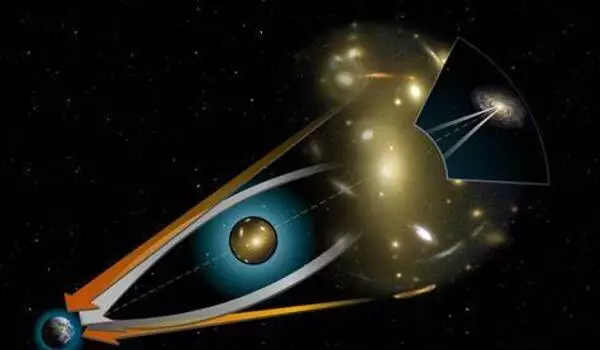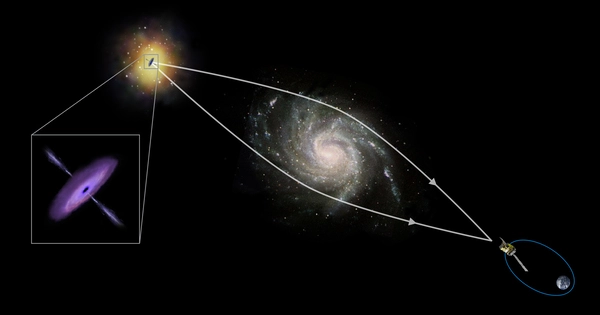Future missions will be able to detect violations of parity-symmetry in the cosmic microwave background polarization more precisely after a pair of researchers managed to account for the gravitational lensing effect, according to a new study published as an Editors’ Suggestion in Physical Review D.
What is the size of the universe? When and how did the universe come into being? Cosmology has made strides toward answering these questions by providing observational evidence for theoretical universe models based on fundamental physics. Researchers today generally accept the Standard Model of Cosmology. However, it is still unable to explain fundamental cosmological questions such as dark matter and dark energy.
The polarization data from the cosmic microwave background (CMB) revealed an intriguing new phenomenon called cosmic birefringence in 2020. Polarization describes light waves that oscillate perpendicular to their direction of travel. In general, the polarization plane’s direction remains constant, but it can be rotated under certain conditions. A reanalysis of CMB data revealed that the polarization plane of CMB light may have rotated slightly between the time it was emitted in the early universe and now. This phenomenon, known as cosmic birefringence, violates parity symmetry.
Polarization describes light waves that oscillate perpendicular to their direction of travel. In general, the polarization plane’s direction remains constant, but it can be rotated under certain conditions.
Because cosmic birefringence is difficult to explain using well-known physical laws, there is a strong possibility that it is caused by undiscovered physics, such as axionlike particles (ALPs). Because the discovery of cosmic birefringence could lead to the discovery of the nature of dark matter and dark energy, future missions are focusing on making more precise observations of the CMB.
To do so, it is necessary to improve the accuracy of current theoretical calculations, but these calculations have not been sufficiently accurate because they do not account for gravitational lensing.
A new study by a pair of researchers, led by The University of Tokyo Department of Physics and Research Center for Early Universe doctoral student Fumihiro Naokawa, and Center for Data-Driven Discovery and Kavli Institute for the Physics and Mathematics of the Universe (Kavli IPMU) Project Assistant Professor Toshiya Namikawa, established a theoretical calculation of cosmic birefringence that incorporates gravitational lensing effects, and worked on the development of a numerical code for cosmic birefringence that includes gravitational lensing effects, which will be indispensable for future analyses.

To begin, Naokawa and Namikawa developed an analytical equation that describes how gravitational lensing affects the cosmic birefringence signal. Based on the equation, the researchers added a new program to an existing code to compute the gravitational lensing correction, and then compared the signals with and without the correction.
As a result, the researchers discovered that if gravitational lensing is ignored, the observed cosmic birefringence signal cannot be well fitted by the theoretical prediction, implying that the true theory is statistically rejected.
Furthermore, the researchers created simulated observational data that will be obtained in future observations to investigate the effect of gravitational lensing in the search for ALPs. They discovered that if the gravitational lensing effect is not taken into account, there are statistically significant systematic biases in the model parameters of ALPs estimated from observed data, which do not accurately reflect the ALPs model.
This study’s gravitational lensing correction tool is already being used in observational studies, and Naokawa and Namikawa will continue to use it to analyze data for future missions.





